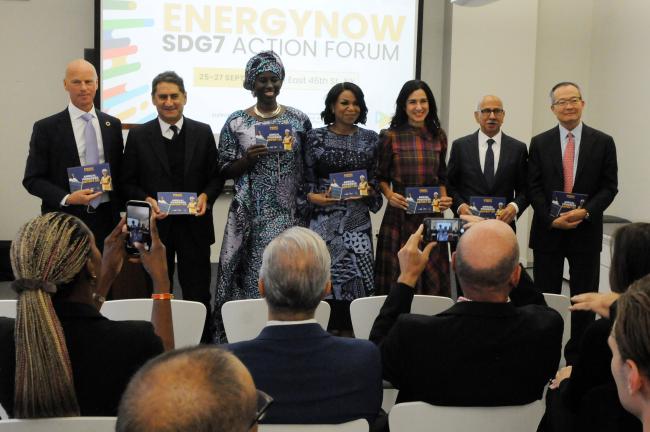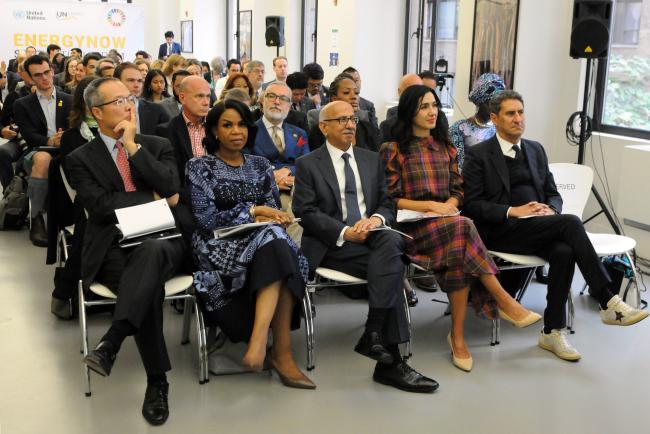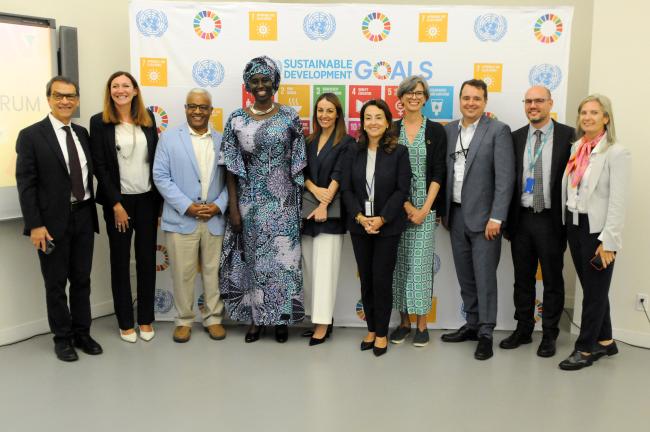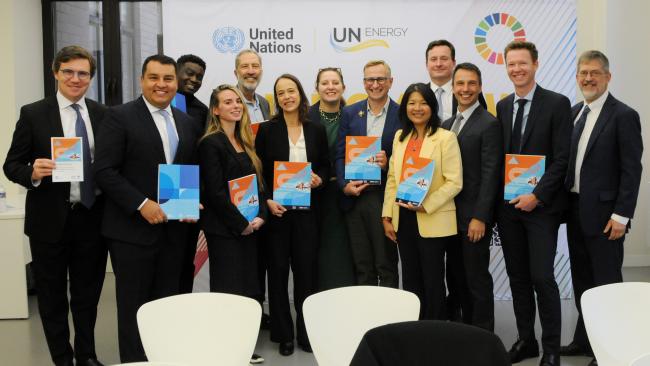The launch of the Energy Compacts Annual Progress Report 2024 marked the first day of the 2024 EnergyNow SDG7 Action Forum. The report cites that commitments to increase renewable energy and access to electricity and clean cooking technologies by 2030 have brought pledges for finance and investment through the Energy Compacts to USD 1.4 trillion, and of this, USD 201 billion in finance was mobilized or deployed for Energy Compact actions since 2021. Energy Compact proponents have, since 2021, enhanced electricity access for 177 million people, an increase of 48 million people in the past year, and clean cooking access for 23 million people.
While many participants during the Forum lauded this progress toward achieving Sustainable Development Goal (SDG) 7 (affordable and clean energy) and its targets, they also emphasized that work is far from over. In his opening remarks, Navid Hanif, Assistant Secretary-General for Economic Development, Department of Economic and Social Affairs (UN DESA), which acts as the Secretariat for UN-Energy, noted that “the promise of the 2030 Agenda remains at risk.” The proponents of the Energy Compacts were recognized for their contributions for advancing progress on SDG7.
During this first day, discussions emphasized the critical role energy plays in enabling sustainable growth by supporting economic, social, and environmental development, including ensuring energy access and availability. Some of the key topics raised during the high-level segment related to: the need to increase financing, including blended finance, particularly to reach remote and rural areas where energy access is low and poverty high; the fact that 685 million people remain without access to electricity; the need to mainstream gender into energy and energy across all sectors; mini-grids as low cost technology for the private sector to bring electricity to 265 million people by 2030; and opportunities to further align SDG7 and Nationally Determined Contributions under the Paris Agreement.
An interactive discussion provoked reflections on how the UN could better contribute to the achievement of SDG7 and what the post-2030 energy landscape might look like. Participants were reminded that a final global review of SDG7 was expected in 2026 at the High-level Political Forum on Sustainable Development, during which the Secretariat would do its best to include all stakeholders, and that the UN General Assembly, in 2027, will discuss how to address the post-2030 Agenda. Some of the suggestions included: a more formal platform, possibly under UN DESA, to convene annually where member States come together to discuss energy for development and to monitor progress, rather than on an ad hoc basis; and adding a coordinator for access to energy in UNDP country offices; and a more consistent process with respect to technology assistance.
In the afternoon, parallel sessions included: Integrating Distributed Renewable Energy Technologies for Sustainable Development in Rural and Remote Areas; The Many Facets of Energy Transition: From India to the World; Sustainable Energy and Water: Supporting Women’s Empowerment and Economic Development; and Ensuring Energy-efficient and Climate-friendly Cooling for All, during which a panel discussion presented the report on Cooler Finance: Mobilizing Investment for the Developing World’s Sustainable Cooling Needs.
To receive free coverage of global environmental events delivered to your inbox, subscribe to the ENB Update newsletter.
All ENB photos are free to use with attribution. For this event, please use: Photo by IISD/ENB - Diego Noguera






















































